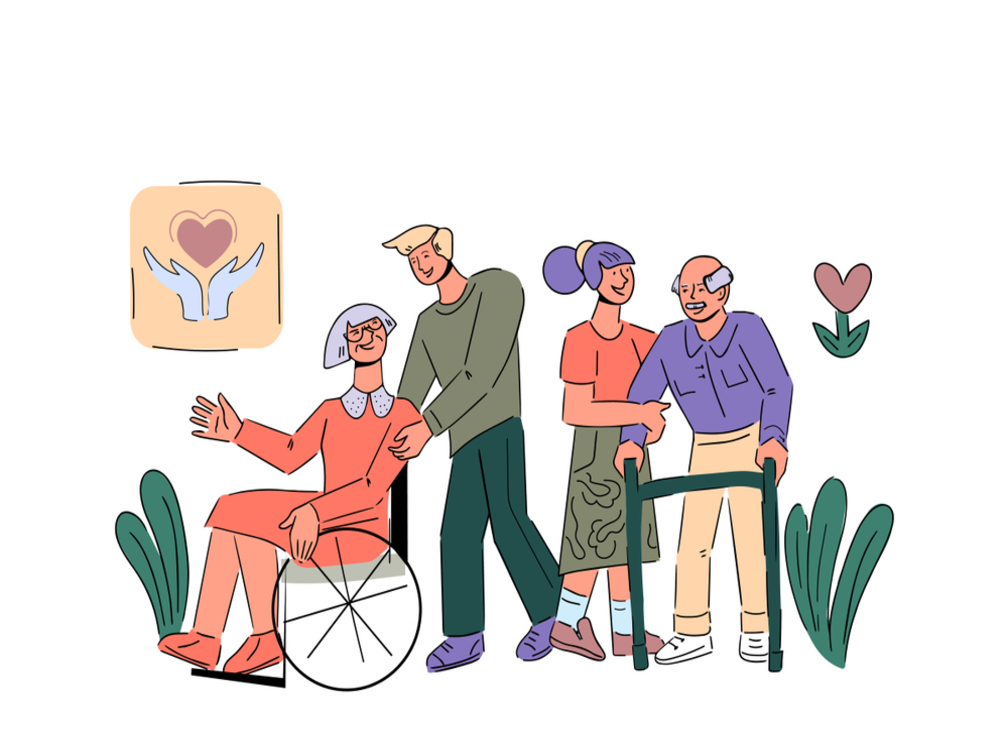Introduction
Living with disability in Australia can feel like navigating a complex landscape. While the National Disability Insurance Scheme (NDIS) supports many, it doesn’t encompass everyone’s needs. This is where foundational disability supports step in, quietly offering a sturdy base and pathways to empowerment for those who don’t quite fit the NDIS criteria.
What exactly are these foundational disability supports?
The NDIS was initially intended for people with disability with the highest support needs. It was designed to sit within a broader support system so that people with disability who were not eligible for the NDIS could still get their needs met. However, these services supports often either do not exist or are hard to find – leaving people without support. This results in poor outcomes for people with disability.
Foundational disability supports are designed to cater to people with disability who might not meet the criteria for NDIS funding, but still need support. Some foundational supports will also be available to people on NDIS.
Imagine this: Sarah, a vibrant young woman with cerebral palsy, dreams of living independently. Her disability doesn’t qualify for an NDIS plan, but she struggles with cooking and showering on her own. Foundational supports could provide her with home care assistance, allowing her to maintain her desired independence and dignity. Or picture John, a father recently diagnosed with Multiple Sclerosis, needing transportation to medical appointments. While his condition isn’t yet severe enough for NDIS eligibility, accessible taxi vouchers through foundational supports could ease his burden and ensure he receives vital medical care.
The spectrum of foundational supports is wide and welcoming:
-
Home and Community Supports:
From cleaning and cooking assistance to personal care and transport, these supports are like having a friendly neighbor who lends a hand with daily living tasks. They enable individuals to live dignified and independent lives in their own homes.
-
Early Intervention:
For children with developmental delays, foundational disability supports offer invaluable services like speech therapy or occupational therapy. This early intervention can make a world of difference in their development and future opportunities.
-
Peer Support:
Sometimes, the best understanding comes from someone who has walked a similar path. Peer support programs connect individuals with disabilities to a network of peers who offer invaluable advice, encouragement, and a sense of belonging.
-
Information and Advocacy:
Navigating the disability support system can be a maze. Foundational supports provide information and advocacy services to demystify the process, help individuals understand their rights, access essential services, and make informed decisions about their care.
-
Assistive Technology and Equipment:
Sometimes, the right tool can make all the difference. Foundational disability supports can provide access to assistive technology like wheelchairs, ramps, or communication aids, empowering individuals to overcome barriers and participate fully in life.
Accessing these supports might seem daunting, but it’s far from impossible:
-
Local Councils:
Often the first point of contact, local councils offer a range of foundational disability support services. Don’t hesitate to reach out to your council’s disability support team.
-
Community Centres:
These hubs are brimming with information and resources. Speak to their disability liaison officers or browse their community directories to find relevant support services.
-
Disability Advocacy Groups:
These organisations are champions for disability rights and have extensive knowledge of available foundational disability supports. They can be your guide through the process and advocate for your needs.
Remember, foundational supports are not a replacement for the NDIS, but rather a complementary pathway. They offer a vital safety net and can even pave the way for future NDIS eligibility by increasing independence and well-being. It’s a two-pronged approach to ensure no one falls through the cracks in the support system.
For individuals living with disability:
- Foundational supports offer a sense of security and autonomy, enabling you to focus on living your life to the fullest.
- They provide essential services that bridge the gap between your needs and your current abilities.
- They empower you to make informed decisions about your care and participate actively in your community.
For those supporting someone with a disability:
- Understanding foundational supports empowers you to advocate for your loved one’s needs and access the right resources.
- They offer peace of mind knowing your loved one has a safety net and pathway to independence.
- They enable you to collaborate with disability support services to create a holistic and supportive environment for your loved one.
Foundational disability supports are more than just programs and services;
When will foundational supports be introduced?
Foundational supports will be phased in over a currently unknown timeline. It is expected that they will become available sometime in the first half of 2024.

